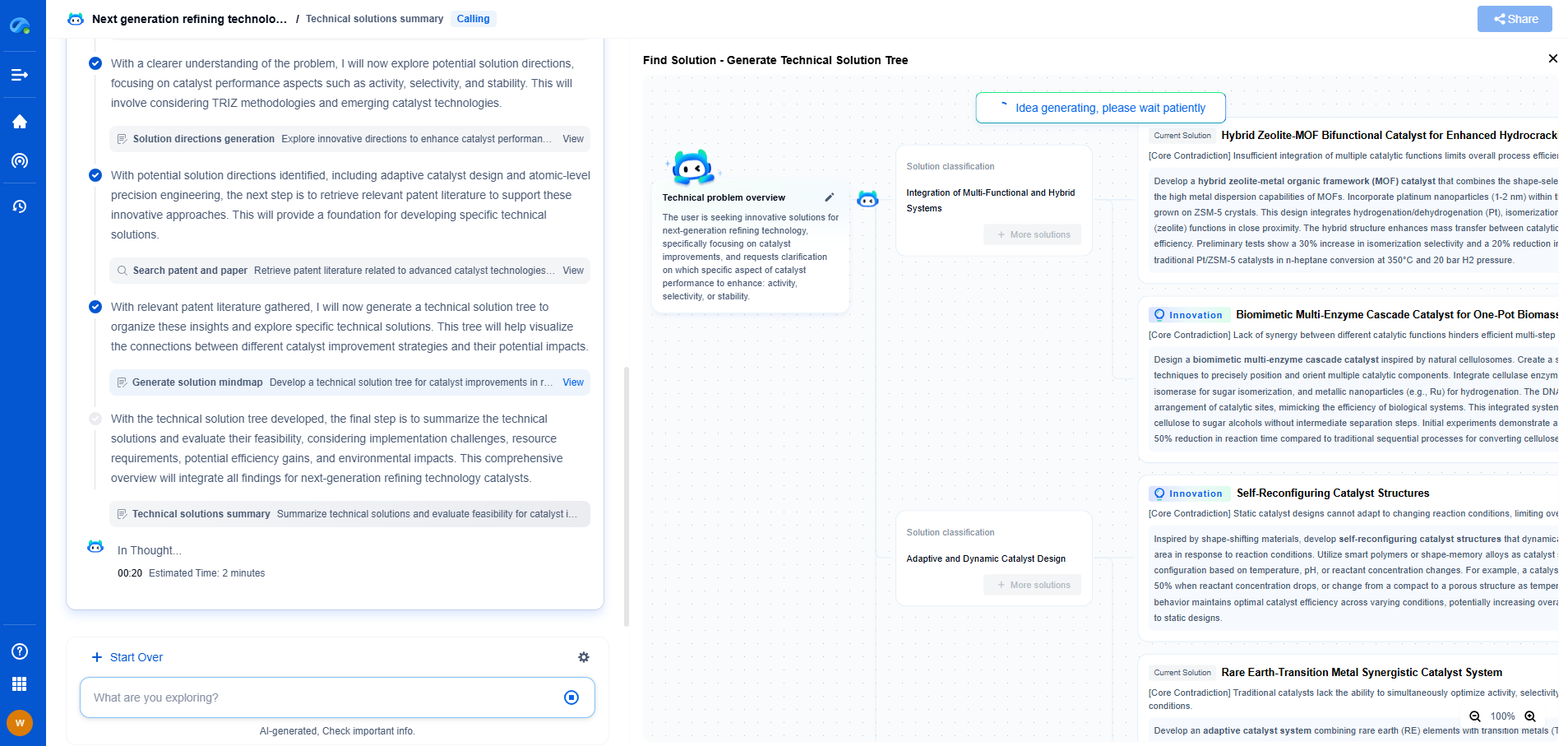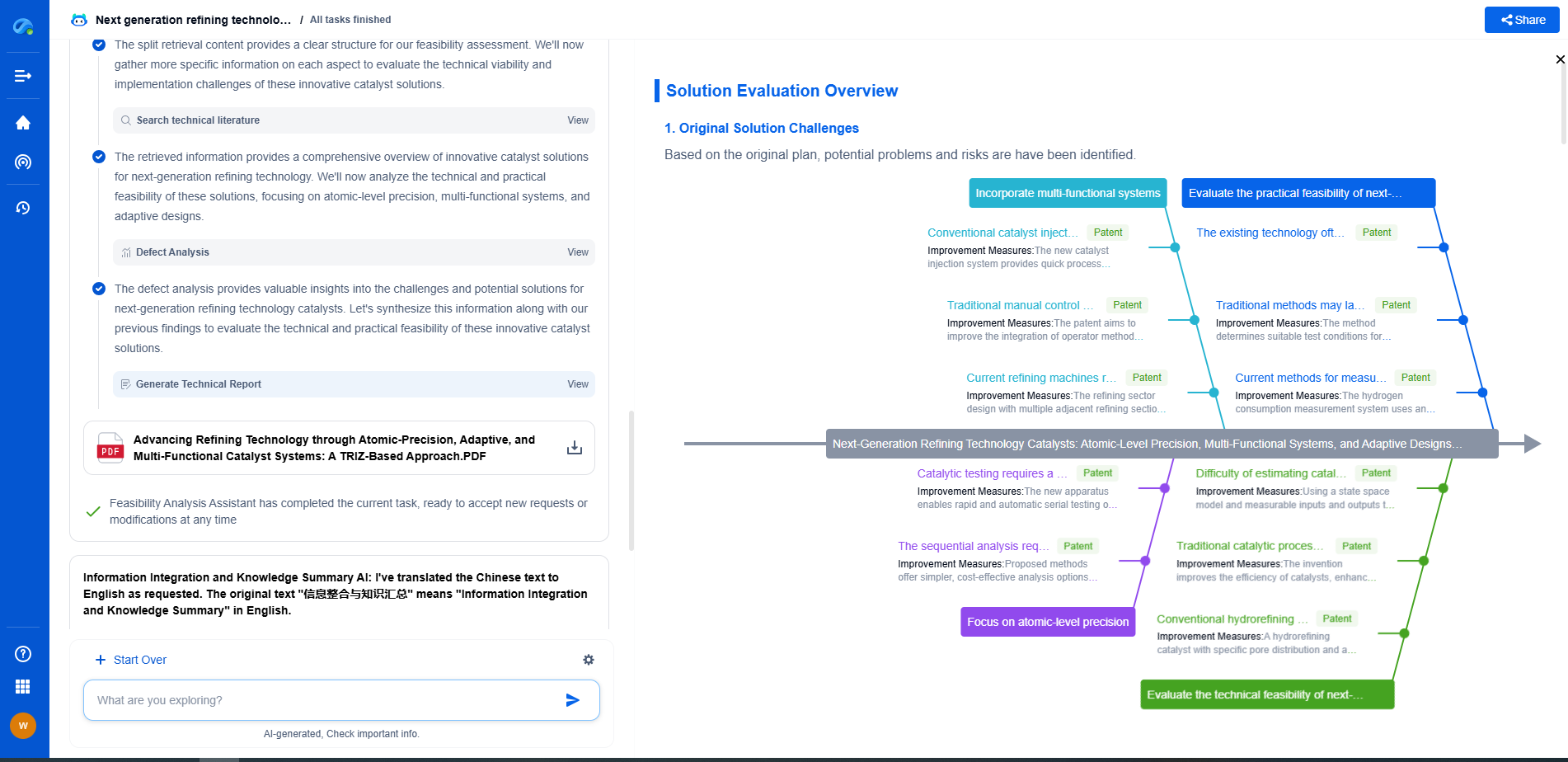The Future of Diesel Generators in a Carbon-Constrained World
JUN 26, 2025 |
In the modern energy landscape, diesel generators have long been a reliable backbone, providing essential backup power during outages and supporting industries in remote locations without access to the electrical grid. Their robustness, ease of availability, and relatively low operational costs have made them a staple across various sectors, including construction, healthcare, and telecommunications. However, as the global community increasingly focuses on reducing carbon emissions to combat climate change, the future of diesel generators is under scrutiny.
Environmental Impacts and Regulatory Pressures
Diesel generators, while efficient, are significant contributors to air pollution, emitting not only carbon dioxide (CO2) but also nitrogen oxides (NOx) and particulate matter (PM). These emissions have adverse effects on both the environment and public health, leading to growing regulatory pressures to reduce their environmental footprint. Governments worldwide are implementing stricter emission standards and encouraging the adoption of cleaner technologies, pushing industries to reconsider their reliance on traditional diesel generators.
Technological Innovations and Hybrid Solutions
In response to these pressures, the diesel generator industry is witnessing a wave of technological innovations aimed at minimizing environmental impacts. One such innovation is the development of hybrid systems that combine diesel generators with renewable energy sources like solar or wind power. These hybrid systems optimize energy use, reduce fuel consumption, and lower emissions by leveraging the strengths of both diesel and renewables. For example, during times of abundant sunlight, solar panels can take over, reducing the generator's workload and, consequently, its emissions.
The Integration of Energy Storage
Another promising development is the integration of energy storage solutions, such as advanced battery systems, with diesel generators. By storing excess energy generated during low-demand periods, these systems can reduce the need for diesel generators to run continuously, thereby cutting emissions and fuel costs. Moreover, energy storage can provide instant power during emergencies or peak demand times, enhancing the reliability and efficiency of power systems.
The Shift Towards Biofuels
To further align with sustainability goals, there is a growing interest in using biofuels as an alternative to traditional diesel. Biofuels, derived from organic materials, offer a cleaner burn with fewer emissions. While transitioning to biofuels may require initial investments and modifications to existing generator systems, the long-term benefits of reduced carbon footprints and compliance with environmental regulations present a compelling case for their adoption.
Challenges and Considerations
Despite these advancements, several challenges remain in the transition to more sustainable diesel generator solutions. The initial costs of adopting hybrid systems or modifying engines to accommodate biofuels can be significant, posing financial hurdles for some businesses. Additionally, the availability and stability of renewable energy sources and biofuels can vary by region, impacting the feasibility of widespread adoption.
Moreover, there is a need for continued research and development to improve the efficiency and reduce the costs of these emerging technologies, ensuring they are accessible to a broad range of industries and applications.
A Path Forward
The future of diesel generators in a carbon-constrained world hinges on a balanced approach that combines innovation with regulatory compliance. Industries must adapt to changing environmental standards by investing in cleaner technologies and exploring alternative fuel sources. By embracing hybrid systems, energy storage solutions, and biofuels, the diesel generator industry can significantly reduce its environmental impact while maintaining its crucial role in the global energy infrastructure.
In conclusion, while challenges remain, the ongoing evolution of diesel generator technology presents a promising path forward. By aligning with global sustainability goals and leveraging technological advancements, diesel generators can continue to serve as a vital energy source in a more environmentally responsible manner.
Stay Ahead in Power Systems Innovation
From intelligent microgrids and energy storage integration to dynamic load balancing and DC-DC converter optimization, the power supply systems domain is rapidly evolving to meet the demands of electrification, decarbonization, and energy resilience.
In such a high-stakes environment, how can your R&D and patent strategy keep up?
Patsnap Eureka, our intelligent AI assistant built for R&D professionals in high-tech sectors, empowers you with real-time expert-level analysis, technology roadmap exploration, and strategic mapping of core patents—all within a seamless, user-friendly interface.
👉 Experience how Patsnap Eureka can supercharge your workflow in power systems R&D and IP analysis. Request a live demo or start your trial today.
- R&D
- Intellectual Property
- Life Sciences
- Materials
- Tech Scout
- Unparalleled Data Quality
- Higher Quality Content
- 60% Fewer Hallucinations
Browse by: Latest US Patents, China's latest patents, Technical Efficacy Thesaurus, Application Domain, Technology Topic, Popular Technical Reports.
© 2025 PatSnap. All rights reserved.Legal|Privacy policy|Modern Slavery Act Transparency Statement|Sitemap|About US| Contact US: help@patsnap.com

